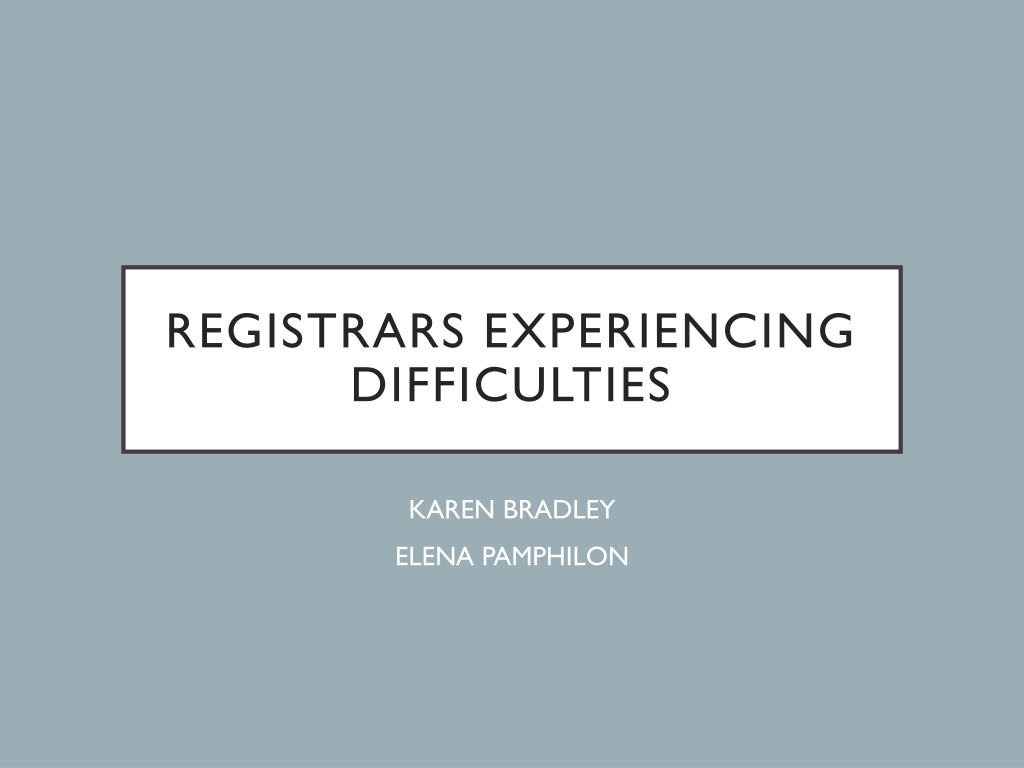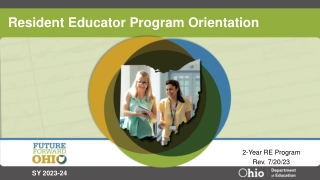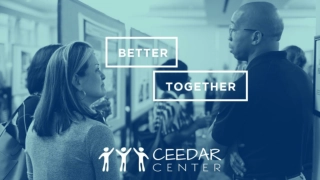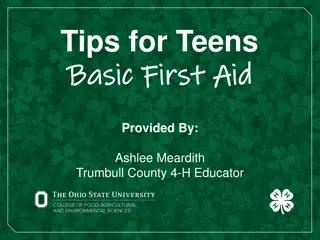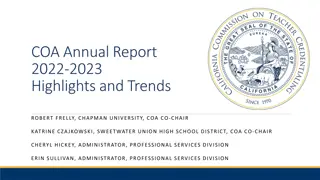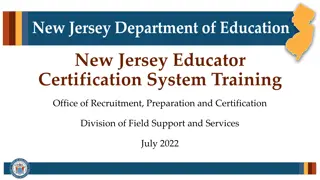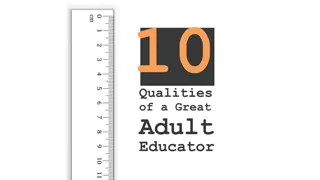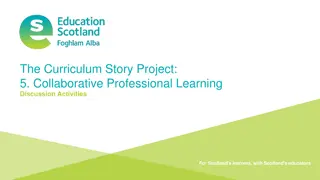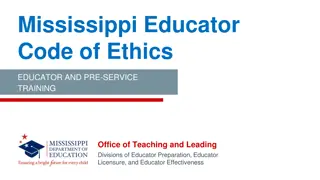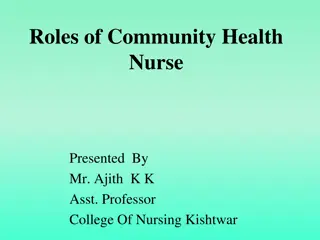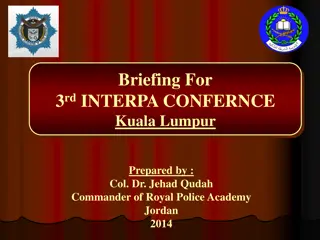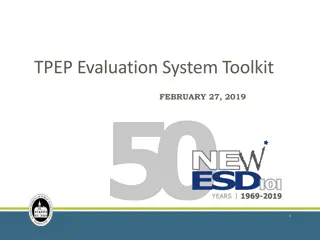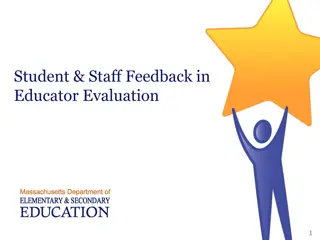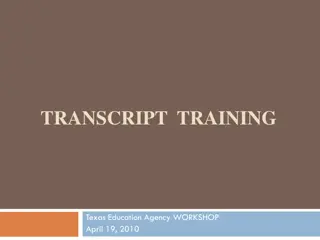Enhancing Educator Practices in Training Programs
Explore key topics related to educator responsibilities, from recording crucial information to addressing trainee concerns and identifying common themes. Discover strategies for giving feedback, understanding trainee needs through Maslow's Hierarchy of Needs, and overcoming challenges such as language barriers and exam failures. Enhance assessment models and skill development with an emphasis on effective communication and documentation in training settings.
Download Presentation

Please find below an Image/Link to download the presentation.
The content on the website is provided AS IS for your information and personal use only. It may not be sold, licensed, or shared on other websites without obtaining consent from the author. Download presentation by click this link. If you encounter any issues during the download, it is possible that the publisher has removed the file from their server.
E N D
Presentation Transcript
REGISTRARS EXPERIENCING DIFFICULTIES KAREN BRADLEY ELENA PAMPHILON
EPORTFOLIO CONCERNS EDUCATOR NOTES WRITING ADVERSE CSRS, ESRS TRIANGULATION OF EVIDENCE
SHARING STORIES Identifying common themes
Ways of giving feedback exercise HAVING THE DIFFICULT CONVERSATION GIVING ACCURATE FEEDBACK RCGP concerns - trainers failing to fail
Why are you recording? for trainee, for trainer, for TPD and Performance team, for ARCP Who should be recording You, trainee, other trainers in your practice, TPD, Performance team RECORDING THIS IS THE MOST IMPORTANT SLIDE! Where should you be recording Educators notes, CSR, ESR, WPBA What would you want to record Facts, behaviours, skills, knowledge, events How would you triangulate your evidence MSF, PSQ, Other posts, Exams, if more than one trainer then 2 x CSR
MASLOWS HIERARCHY OF NEEDS
LANGUAGE ISSUES
Exam failures AKT (applied knowledge test) & SCA (clinical skills assessment) Ongoing CSR and ESR concerns IDENTIFICATION IN ESTABLISHED TRAINEES Organisational issues importance of educators notes Professional behaviour concerns
SKIPE ASSESSMENT MODELS I-SID
SKIPE Skills Knowledge Past External Internal
I Identify S Share I Involve D Document use RDMp, SKIPE, other sources concern with trainee, ES, TPD, performance lead the trainee - plan together educator notes on eportfolio be factual, non judgemental, notify the trainee that you are doing this. Add frequently, include positive and negative I - SID
SUPPORTING YOUR TRAINEE TAKING AKT
Clinical medicine 160 questions Average score 72% AKT BREAKDOWN OF SCORES Evidence interpretation 20 questions Average score 74.5% Organization 20 questions Average score 72%
Taking it at the wrong time Poorly prepared REASONS FOR FAILING AKT Poor technique Health issues/anxiety Neurodiversity
Taking it at the wrong time Poorly prepared Timing issues REASONS FOR FAILING THE CLINICAL EXAM ( CSA, RCA, SCA) Poor technique Stamina for a 12 patient surgery Health issues/anxiety Neurodiversity
IDENTIFYING TRAINEES' WEAKNESSES RCGP curriculum GP curriculum self assessment tool RCGP content guide GP curriculum: overview GP curriculum: overview AKT content guide AKT content guide Self assessment tools Self assessment tools GP curriculum: overview AKT sample questions and answers PUNs and DENs, Trainer feedback AKT summary reports MRCGP | Applied Knowledge Test (AKT) MRCGP | Applied Knowledge Test (AKT) MRCGP | Applied Knowledge Test (AKT) Fourteen Fish AKT package mock AKT RCGP -GP SelfTest Home: GP SelfTest Home: GP SelfTest
NEURODIVERSITY Referral by deanery for formal testing if screening is suggestive/borderline Regularly unmasked by the AKT exam
I remember: 5% of what I hear HOW TO PRACTICE USING THE INFORMATION IN PREPARATION FOR THE EXAM? 10% of what I read 15% of what I hear and read 30% of what I m shown 50% of what I discuss 75% of what I do 90% of what I teach others
Careful Question reading - such as single most likely Be ruthless with your timing (just under 1 minute per question) Trust your instinct and you will often be correct with your first choice. Do NOT omit any question no negative marking. GUESS! EXAM TIPS Only mark 20 answers approximately to revisit Make use of the cover test .
One hour a day approx. 3 months HOW MUCH WORK? Choose the right job to sit the exam Time it when it fits best with home life.
Make sure you have watched the Pearson Vue tutorial video so you know what to expect Make Take your passport/ID documents Take ON THE AKT EXAM DAY Check journey time/parking info/take money Check EAT! Take a drink. Get up and stretch. EAT
SIT AND SWAP SURGERIES ESSENTIAL TRAINING
Vitally Important Watching trainers and other GPs SIT AND SWAP SURGERIES CSA/SCA Mark Schemes Prioritising Exams not COTs
TRAINEES REQUIRING ADDITIONAL SUPPORT WHEN AND HOW DO YOU GET THE SUPPORT TEAM INVOLVED?!
WHO DO YOU CONTACT? Training Programme Director Clinical Supervisor Educational Supervisor Head of Training Support Locality Support Lead Head of school
Our aim is to support TPDs and trainers help trainees to achieve a successful CCT at the end of training; enabling them to progress to safe independent practice. WHAT IS THE SUPPORT TEAM? We meet trainees, trainers and TPDs, run courses, signpost, troubleshoot and respond to concerns. We aim to constantly enrich what we offer, being open to ideas from other deaneries as well as our own educators, in developing our educational programmes.
Exam fails AKT, CSA/RCA/SCA Scheme concerns Very early sometimes. (Has the trainee achieved foundation competency? Referral to the NRO? Extra training grant?) WHO GETS REFERRED TO THE SUPPORT TEAM? Persistent non engagement with eportfolio SUIs / GMC conditions
Poor knowledge Poor motivation TOP EDUCATIONAL DIFFICULTIES Unable to make decisions Poorly structured consulting
Courses - Study skills for busy doctors, study skills for AKT, exam support courses, Coaching sessions, 1:1 examiner sessions, enhanced induction programme for IMGs. HOW DOES THE DEANERY SUPPORT TRAINEES? Neurodiversity testing paid self screening and paid full screening if positive. One to one meetings Regular review eportfolio and personally
TPD support. Performance team support. Workshop support from peers Sessions at Spring and Autumn school Trainer plenaries HOW DOES THE DEANERY SUPPORT TRAINERS? Consultation resources North West GP consultation toolkit Dedicated afternoon workshops Extra training grant
